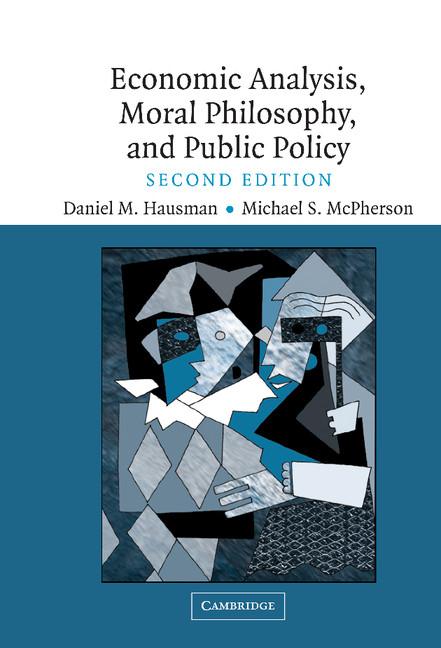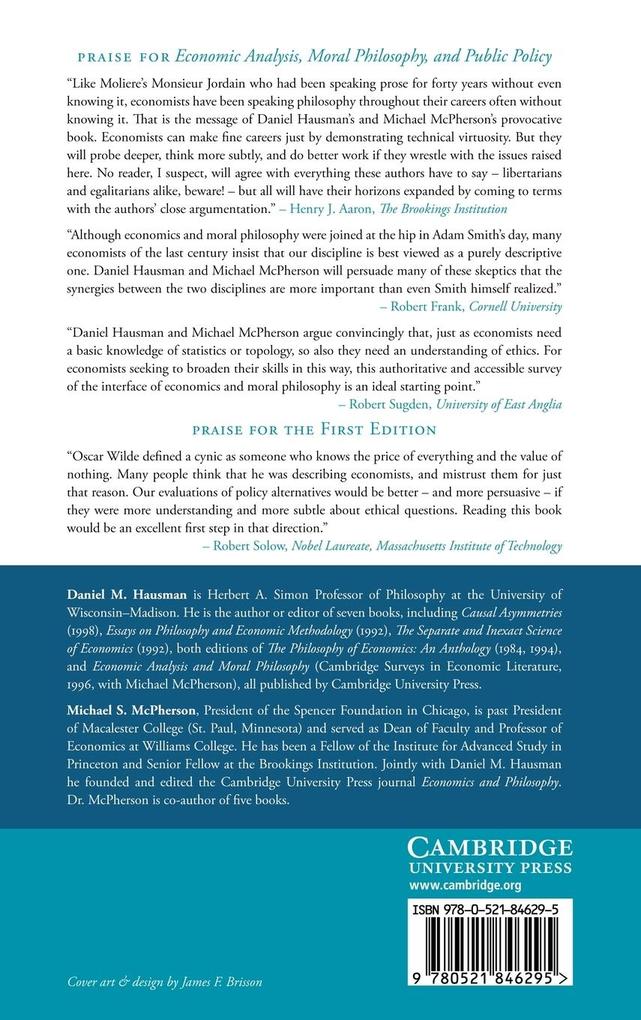This book shows through accessible argument and numerous examples how understanding moral philosophy can improve economic analysis, how moral philosophy can benefit from economists analytical tools, and how economic analysis and moral philosophy together can inform public policy. The book lays out the standard theory of rationality and connections to welfare economics, and it clarifies important moral notions omitted in standard welfare economics, including freedom, inequality, and justice. It also introduces technical work in social choice theory and game theory that is relevant to moral theorizing.
Inhaltsverzeichnis
1. Ethics and economics?; 2. Normative economics: two examples; 3. How ethics matters to positive economics: two examples; Part I. Rationality and Morality: 4. Rationality; 5. Rationality in positive and normative economics; 6. Rationality, norms, and morality; Part II. Welfare and Consequences: 7. Utilitarianism and consequentialism; 8. Welfare; 9. Efficiency; Part III. Liberty, Rights, Equality, and Justice: 10. Liberty, rights and libertarianism; 11. Equality and egalitarianism; 12. Justice and contractualism; Part IV. Moral Mathematics: 13. Social choice and theory; 14. Game theory; 15. Pollution transfers and school vouchers - normative economics reconsidered; 16. Economics and ethics, hand in hand; Appendix; Glossary; References.













